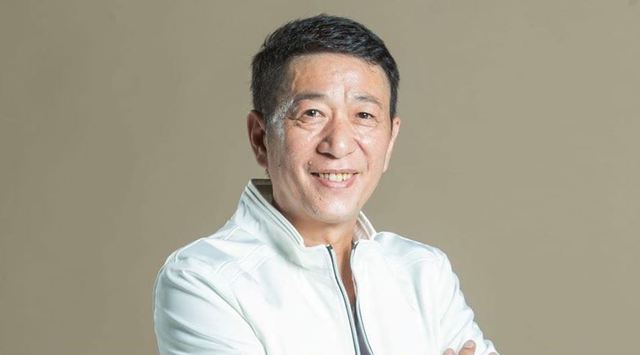The decision by Chinese diplomats to engage in political warfare at Port Moresby is deeply related to Xi Jinping’s uncompromising brand of domestic politics.
History shows that the more brutal and personalistic China’s leader is at home, the more war-like its diplomacy becomes abroad. For Xi Jinping’s China, political warfare is back with a vengeance.
Political warfare pre-dates the Chinese Communist Party (CCP) as a practice of Chinese statecraft. Indeed, political warfare was a subject at the Whampoa Military Academy during the Republican Era (1912-1949). Taiwan, which bears the Republic of China as its official name, continues this legacy and retains a political warfare bureau to this very day.
However, the CCP, especially during the Cultural Revolution (1966-1976), was particularly fond of using political warfare as a mode of statecraft for the People’s Republic of China. With unforgiving, Maoist politics at home, Chinese diplomats regularly used overt coercion and covert front groups to advance the interests of the Chinese Party-state against foreign countries and institutions.
Domestically, Xi Jinping is behaving in a similar way to Mao Zedong during the Cultural Revolution. Xi is eroding norms of governance and nurturing a cult of personality (個人崇拜); he is allowing the Party-state to gain control over the means of production; and is ensuring the Party slithers into all nooks and crannies of the Chinese state and society. Put differently, Xi is wrangling China back to its Leninist core.
Internationally, China’s diplomats may have to start proving their allegiance to the CCP and personal loyalty to Xi Jinping. Behaving like political warfare officers who overtly and covertly advance the interests of China’s Party-state against other sovereign nations and international bodies could be one way for Chinese diplomats to signify their Leninist credentials in deference to Xi.
The logic of political warfare and the logic of diplomacy are very different. When effective, political warfare coerces nations into submission through overt and covert means, while sound diplomacy actively persuades countries to behave differently through co-operative discussion. Political warfare strives for unwilling, ideally unwitting resignation, while diplomacy intentionally seeks to win hearts and minds.
As Australia and many other nations have seen, United Front work and conventional espionage form one aspect of China’s political warfare tactics abroad. What Australia and many other nations were yet to see is the overt side of China’s political warfare tactics.
China’s overt manifestation of political warfare is what Oxford scholar Todd Hall might call a “diplomacy of anger.” This is a tactic that seeks to combine official displays of anger with public allusions to China’s raw power as a means of coercing countries into accepting the demands of the Leninist Party-state.
At the recent leader’s summit for Asia-Pacific Economic Cooperation (APEC) in Port Moresby, many member-states saw China’s “diplomacy of anger” for the first time. In doing so, China’s overt political warfare tactics became clear.
Much like the Cultural Revolution, China’s diplomats displayed loyalty to Xi by “listening to the Party and walking with the Party” (聽黨話跟黨走). This involved the deploying overt and covert tactics of political warfare in Port Moresby.
Relishing in such international sabotage is but one consequence of the menacing, cultish style of leadership that Xi Jinping has developed within China since 2012.
Overtly, China invoked a “diplomacy of anger” by barging into the office of Papua New Guinea’s foreign minister and made public allusions to its strength through putting up Chinese flags in downtown Port Moresby. The objective here was to undermine Papua New Guinea’s neutrality as the chair of APEC and coerce the country into accepting the demands of China’s Leninist Party-state.
There is also evidence that China used covert means to subvert the narratives that were being written by foreign countries. Josh Rogin reported the best example of this in the Washington Post whereby China attempted to cut off foreign journalists’ internet access while U.S. Vice-President Mike Pence was delivering a throughly critical address against China. If true, this would amount to a covert tactic in political warfare that sought to interfere with international coverage on China.
China’s Party-state remembered the logic of political warfare and forgot the logic of diplomacy in Port Moresby as though it were the Cultural Revolution. Rather than seeking persuasion through diplomatic tradecraft like other nations, China seemed to be engaging in a political warfare campaign that sought to overtly and covertly undermine the interests of all APEC member-states.
China’s political warfare campaign in Port Moresby ended with a failure for APEC as the multilateral institution didn’t issue a communiqué. However, much like the Cultural Revolution, China’s diplomats couldn’t care less. Instead, as Rogin again reported, the Chinese delegation cheered when the member-states failed to agree on a joint-statement for the first time in history. Relishing in such international sabotage is but one consequence of the menacing, cultish style of leadership that Xi Jinping has developed within China since 2012.
China’s decision to engage in political warfare over diplomacy at APEC is deeply related to Xi Jinping’s uncompromising brand of domestic politics. However, the origins of political warfare in China go back further than Xi Jinping and even the CCP itself. If history offers any guide to future behavior, China is likely to continue waging political warfare in international fora such as APEC. The world’s nations and multilateral institutions ought to respond in a proportionately forthright fashion.
You might also like
More from China
A Few Thoughts on the Meng-Spavor-Kovrig Exchange
It is hard not to see this weekend’s developments as a victory for China and the creation of a world …
In Memoriam: Lee Teng-Hui and the Democracy That He Built
The former president of Taiwan is the incontestable refutation of the belief that history is merely an impersonal force, that …
Candidate Claims ‘Nobody Loves Taiwan More Than Xi Jinping’
Family business connections in the Pingtan free-trade zone and a son’s involvement with the CPPCC are raising questions about possible …









